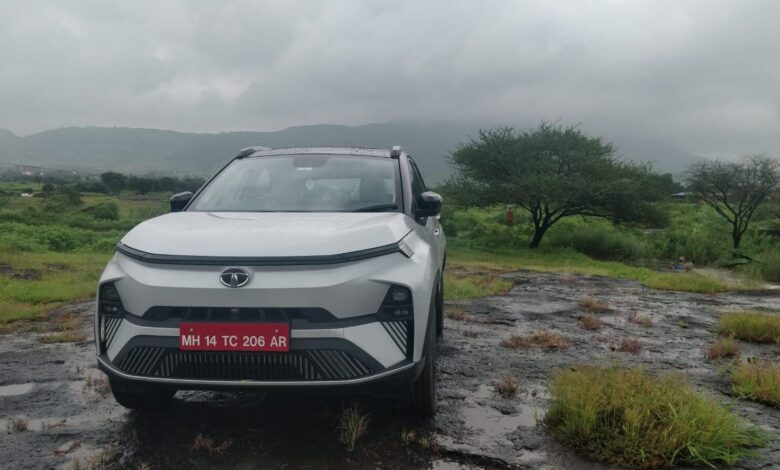Early enthusiastic EV adoption phase possibly over, says Tata Motors CFO

- Tata Motors is exploring new growth avenues for electric cars as the demand for electric vehicles has bumped into a slowdown challenge.
Despite the increasing awareness about vehicular pollution and growing positive sentiment towards electric vehicles, the early enthusiastic EV adoption phase in India is possibly over, believes Tata Motors’ Chief Financial Officer P B Balaji. The Tata Motors CFO also said that the automaker will now focus on the market development for electric vehicles to boost EV penetration in India and address various concerns of the new set of customers, PTI reported.
Tata Motors leads the Indian electric car market with nearly 85 per cent market share. The OEM now aims to increase that stake. However, in the recent past, the growth pace of electric vehicles in the Indian market has slowed down a bit keeping pace with the global trend. Tata Motors too has experienced it through its sales numbers.
Speaking on Tata Motors’ EV strategy, Balaji said the OEM is committed to the expansion of EVs, and in 2024, the company will launch its Curvv EV as part of the plan. “We would obviously want to build momentum on that. At the same time, we are also clear that the phase of the early majority wanting to come in on an enthusiastic mode is probably getting over,” he said. The Tata Motors official further said that while a new set of customers is starting to come, a majority of them will require much more reassurance in terms of charging infrastructure, total cost of ownership economics, residual value, variety, choice of models and various use cases.
Watch: 2023 Tata Nexon EV facelift first drive review: Best-seller gets even better?
Growth slowdown is not a challenge
Tata Motors previously set a target of selling one lakh units of electric cars in FY24, which the company eventually missed. However, the OEM is confident of crossing the milestone in FY25. The auto company is even keeping all options open for its wholly owned subsidiary, British luxury car brand Jaguar Land Rover on whether to apply for incentives under India’s new EV policy and manufacturing in the country.
Asserting that the company does not see the current situation as a challenge, Balaji said that the OEM doesn’t see this situation as a challenge. “We see this more as a phase of exciting market development,” he added. The Tata official further added that it is normal for any developing market to reach a particular point and hold for a bit. “It is absolutely natural, and we do not see a concern from that perspective at all. We saw that earlier too and we will see it again.” he further said, adding, “So, our entire focus this year is to work on the market development front, on stepping up the EV penetration and that is a nice place to be because it will also give us excellent returns as we start solving those barriers to adoption (of EV) in each of those.”
Tata Motors exploring new growth avenue
Amid the growth slowdown, Tata Motors is focusing on exploring new avenues for boosting electric vehicle sales. Balaji revealed that the focus of the auto company now is to address what is stopping EV adoption faster and clear the pathway for it to start accelerating again. “We are not talking about a growth crisis here, we are actually looking at how to step up the penetration. We (Tata Motors) used to have 1 per cent penetration, we are sitting at 13 per cent penetration of our portfolio as electric,” Balaji said, adding that this would only keep increasing as more and more electric cars come into the market.
When asked about guidance for electric car sales, considering the auto company missed the target of one lakh units sales in FY24, Balaji said, “In the current year, we definitely want to exceed the 100,000 units, we are confident of doing so.” Incidentally, in FY24, Tata Motors sold 73,800 electric cars, registering a 48 per cent year-on-year growth over FY23.
First Published Date: 12 May 2024, 10:53 AM IST



